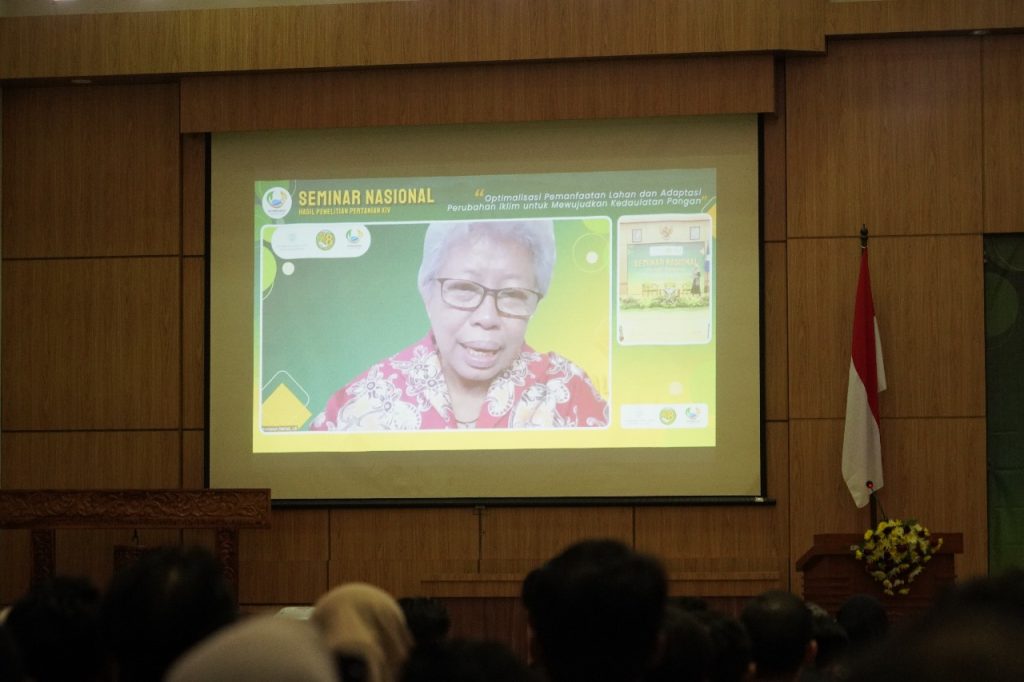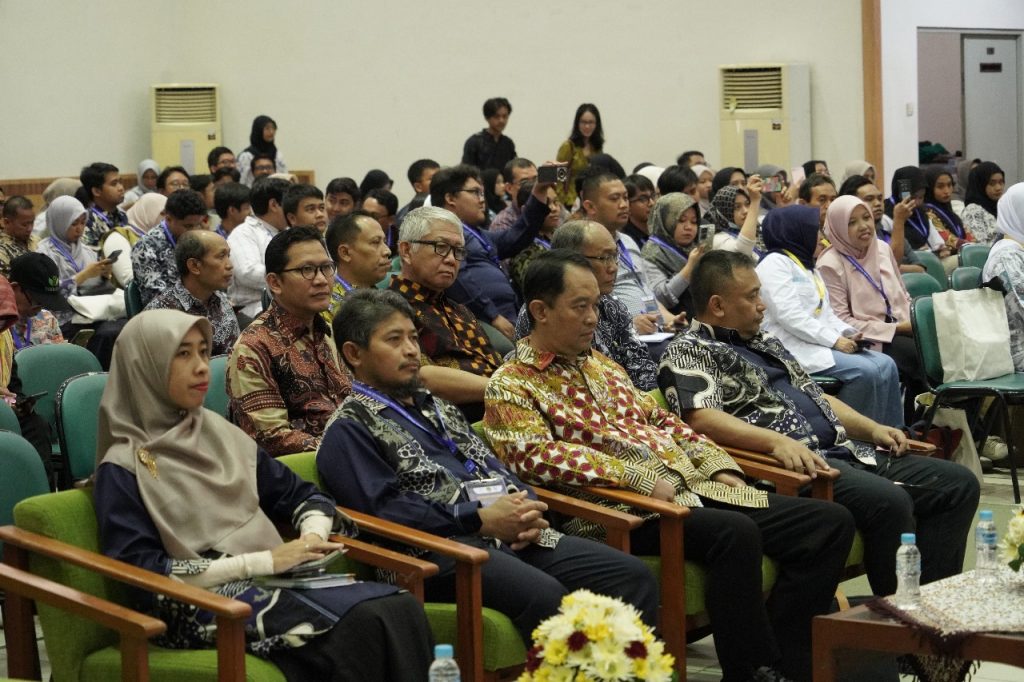
On Saturday, 21 September 2024, the Faculty of Agriculture Universitas Gadjah Mada (Faperta UGM) hosted the 14th National Agricultural Research Seminar at the Prof. Harjono Danoesastro Auditorium as part of the 78th Anniversary of the Faculty. One of the keynote speakers was Prof. Ir. Kurniatun Hairiah, Ph.D., a renowned expert in soil biology and root ecology, and a Professor from the Faculty of Agriculture, Universitas Brawijaya. Prof. Kurniatun, familiarly known as Prof. Cho, delivered a presentation titled “Optimizing Land Use through Agroforestry for Climate Change Adaptation and Food Sovereignty.”
During her presentation, Prof. Cho highlighted that global climate change has led to increasing soil degradation year by year, resulting in the loss of biodiversity in the soil. This issue has significantly reduced soil fertility and led to further challenges, including the shrinking availability of agricultural land that is suitable for food production and other agricultural outputs.
“Climate change is a major issue that requires complex solutions. Agriculture is expected to contribute to reducing the impact of climate change while adapting to ensure food security,” stated Prof. Cho.

In the past, climate change primarily affected soil nutrients, water, carbon content, soil organisms, and plant growth. However, today, the impacts have become more complex, especially in relation to the environmental services provided by agriculture. Prof. Cho explained that agroforestry is one system that offers a viable solution to these challenges.
“Agroforestry combines tree planting on agricultural land rather than in forested areas. Research has shown that agroforestry is an effective system to address current agricultural land issues, as it has been proven to improve water availability, soil carbon, soil nutrients, microclimate regulation, erosion reduction, and carbon sequestration,” she elaborated.
In addition to producing timber, agroforestry also yields non-forestry products, such as coffee and cacao, which can serve as sources of national revenue. Agroforestry not only supports food production but also improves soil health, leading to sustainable high-yield food production.
The 14th National Agricultural Research Seminar is a testament to the Faculty of Agriculture UGM’s commitment to supporting the achievement of several Sustainable Development Goals (SDGs), including SDG 1: No Poverty, SDG 2: Zero Hunger, SDG 3: Good Health and Well-being, SDG 4: Quality Education, SDG 12: Responsible Consumption and Production, SDG 13: Climate Action, SDG 15: Life on Land, and SDG 17: Partnerships for the Goals.
Reporter: Karina Nisa Intan Kusuma and Hanita Athasari Zain
Translator: Agrit Kirana Bunda
Photo: Media Faperta
